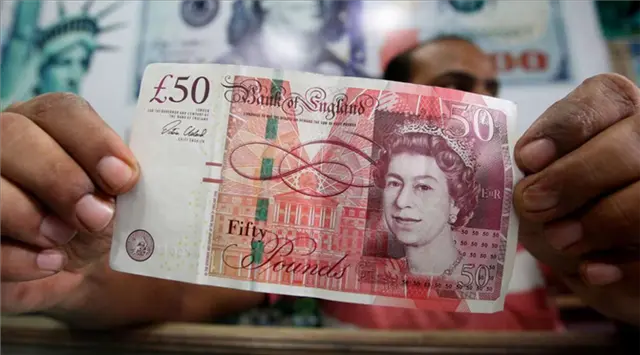The pound weakened further in early Asian trade on Friday after French president François Hollande called for a hard Brexit for Britain.
The currency fell to as low as 1.1819 against the US dollar, according to pricing provided by Thomson Reuters, before later recovering to $1.24. It was the most aggressive decline in the currency since news of the Brexit vote on June 25.
On Thursday, the currency hovered around $1.2720 after hitting a low of $1.2686 on Wednesday, its lowest level in 31 years.
The aggressive fall on Friday follows a volatile week for the battered currency, taking its losses to 3.6 per cent since Monday, according to Reuters data.
The latest swing downwards came as Hollande, speaking in Paris at a dinner attended by EU officials, was quoted by theFinancial Timesas saying “we must go all the way through with the UK’s willingness to leave the EU. We have to have this firmness.
“If not, we would jeopardise the fundamental principles of the EU,” he warned, suggesting the EU needs to make an example of Britain so that other nations considering leaving will know they can’t do it without a cost.
Hollande’s comments follow similar remarks by German Chancellor Angela Merkel, who said on Thursday that Britain would not receive any special treatment once it left the economic bloc.
The selling began to accelerate following British Prime Minister Theresa May’s announcement on Sunday that Article 50, a piece of legislation that launches the exit process, could start by the first quarter of 2017.
Speaking in Hong Kong on Friday morning, however, Mark Garnier, Britain’s Parliamentary Under Secretary of State at Department for International Trade, said he considered the pound had “probably been too high anyway” against the euro and the US dollar, and was now correcting.
“Clearly it’s to do with the [Brexit] vote, but actually it’s not an unwelcome reaction. Sterling is probably about where it should be,” said Garnier, who is in Hong Kong as part of a Asian tour to promote investment in Britain.
“We’re just going through a relatively short period of volatility.”
He said volatility was “a bad thing” and would be a factor in investors’ confidence in Britain. But he noted part of the problem was that the British parliament wasn’t sitting at the moment which meant there was a deficit of news.
“We’ve probably found stability at this level. What we don’t want is to see it jumping around five per cent on a weekly basis – nobody wants their currency to be volatile.”
Meanwhile, there was also market speculation that the sudden decline in the pound’s value on Friday was the result of a wrongly entered trade since there was no particular news to justify such wide volatility in the pound.
It could be the result of a fat finger, said Elias Haddad, senior currency strategist at Commonwealth Bank of Australia.
“It looks like it was a algorithm-driven flash crash triggered by aFinancial Timesarticle based on French President Hollande’s speech on Brexit,” Angus Nicholson, a markets analyst in Melbourne at IG Ltd, told Bloomberg.
“Given low volumes in the Asian session, it would have forced other algorithms to join in and magnify the fall.”
(SCMP)
 简体中文
简体中文

